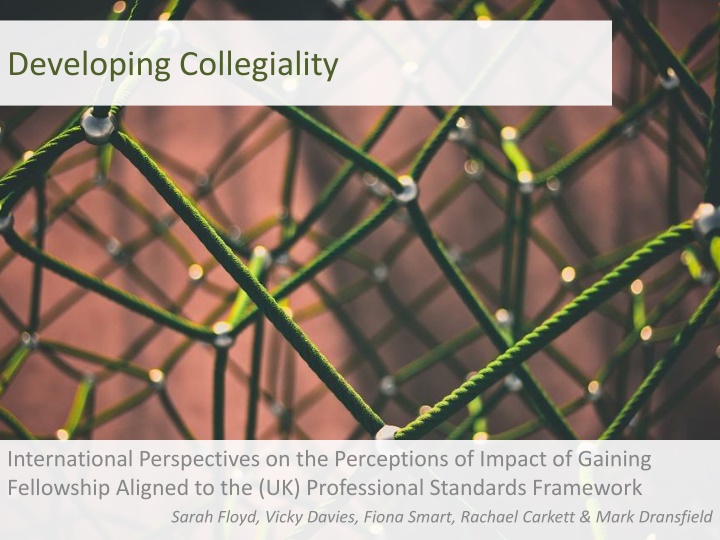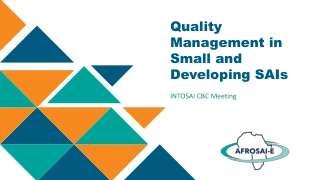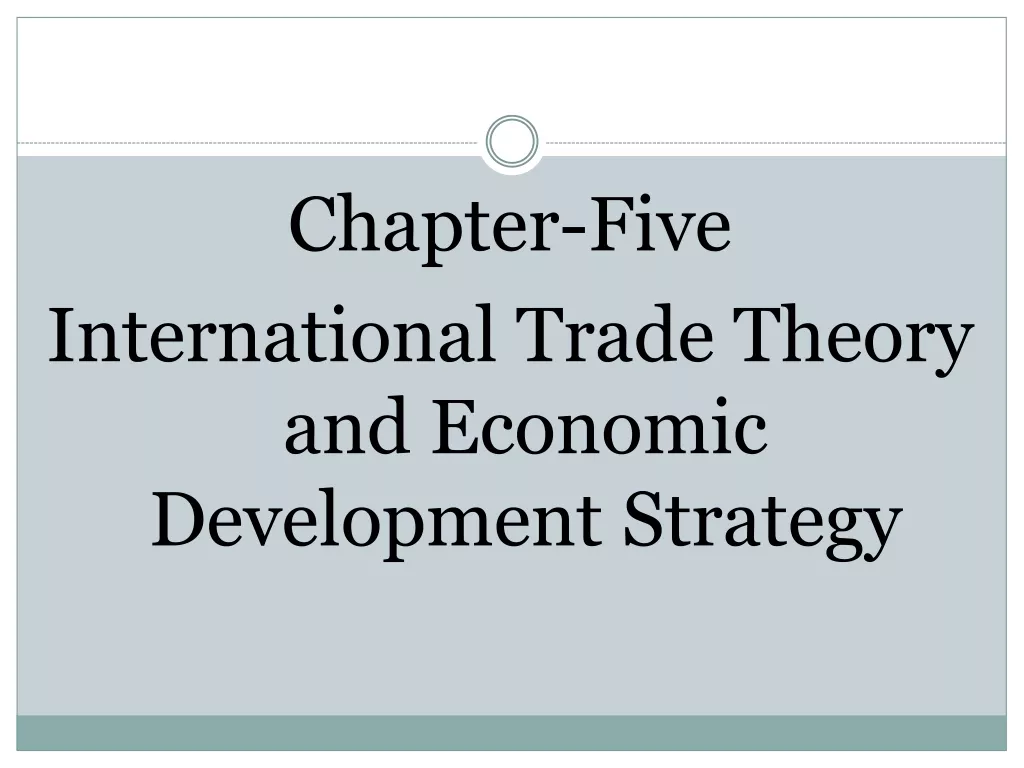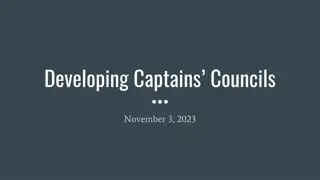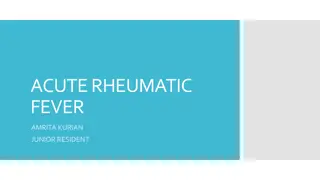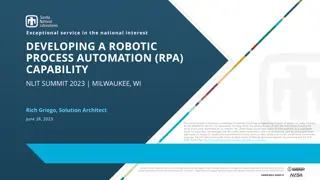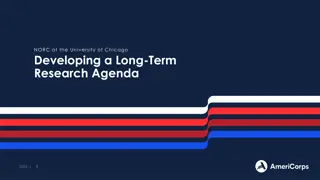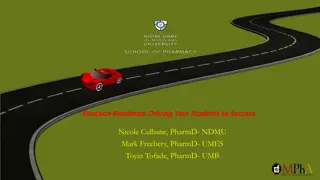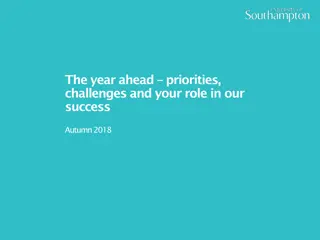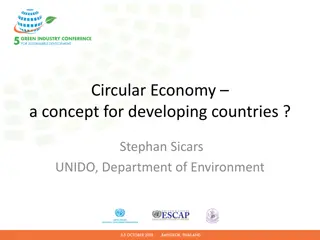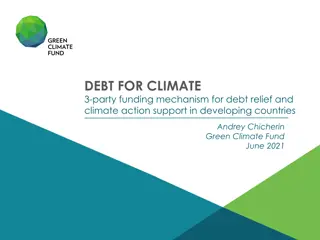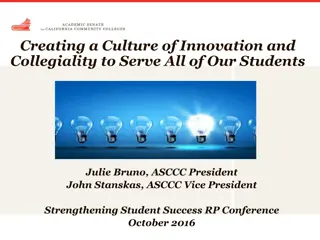Developing Collegiality
"Explore the impact of gaining fellowship aligned to UK Professional Standards Framework through research findings, group discussions, and insights on sustaining expectations. Delve into the connection between fellowship and student experience, methodology, descriptive stats, and the impact across various stakeholders."
Download Presentation

Please find below an Image/Link to download the presentation.
The content on the website is provided AS IS for your information and personal use only. It may not be sold, licensed, or shared on other websites without obtaining consent from the author.If you encounter any issues during the download, it is possible that the publisher has removed the file from their server.
You are allowed to download the files provided on this website for personal or commercial use, subject to the condition that they are used lawfully. All files are the property of their respective owners.
The content on the website is provided AS IS for your information and personal use only. It may not be sold, licensed, or shared on other websites without obtaining consent from the author.
E N D
Presentation Transcript
Developing Collegiality International Perspectives on the Perceptions of Impact of Gaining Fellowship Aligned to the (UK) Professional Standards Framework Sarah Floyd, Vicky Davies, Fiona Smart, Rachael Carkett & Mark Dransfield
Format of the session Activity Timing Overview of research project and initial findings (Mark & Vicky) 12.20 12.35 (15 minutes) Group discussion 1: Opportunities for group development in recognition processes based on quotes from data gathered plus opportunities for participants to input their experiences (Fiona & Rachael) 12.35-12.45 (10 minutes) Group discussion 2: Sustaining expectations implications for academic developers in supporting communities of practice beyond fellowship (Sarah ) 12.45-12.55 (10 minutes) Round up of findings (Mark & Vicky) 12.55-13.00 (5 minutes) Q&A (All) 13.00-13.05 (5 minutes)
The need Number of schemes is growing rapidly Majority of fellowships are achieved through schemes We are all concerned about impact The elephant in the room is there a connection between fellowship and the quality of the student experience Wilding, Richard (r.d.wilding@CRANFIELD.AC.UK) Monday, September 4, 2017. TEF award link to Teaching Qualification, Student Staff Ratio and Total Staff - no correlation?[E-mail]. Message to: PFHEA@JISCMAIL.AC.UK [Accessed4th September 2017].
Methodology Questionnaire: Based on some of the ideas from the HEA CPD Toolkit evaluation instrument (Kneale et. Al., 2015; PedRio, 2016) circulated to applicants who have achieved a category of fellowship through institutional routes to fellowship 2-3 years prior to the survey. Analysis of the quantitative and qualitative data
Descriptive stats 375 surveys completed Male/Female Respondents by Descriptor 50.00% 40.00% Male 34% 30.00% 20.00% 10.00% Female 66% 0.00% AFHEA FHEA SFHEA PFHEA
Findings Does fellowship have an impact? Self Students Peers IMPACT Faculty Sector Institution
Collegiality quotes We tend to get so caught up in day-to-day teaching that we don't always make time to sit back and look at how or why we do things and how this chimes with current research. The fellowship process particularly through working with my mentor, allowed you to make time for this. I have encouraged colleagues to apply for Fellowship and offered to review their applications and make suggestions of their practice that could be included in their applications. reflect on my learning and teaching and, more importantly, to discuss this with my peers. teaching that were new or challenging to me, and find research perspectives from outside, as well as from within my artistic practice I highly value working with the network of FHEA's and SFHEA's in my institution It has forced me to take the time to It enabled me to consciously target aspects of university My relationship with my mentor led to new contacts / networks.
Group 1 Discussion Our data indicate that the process of gaining Fellowship is collegiate, however is this by accident or design? Rather than focusing on our schemes, can we ask you to consider two questions? Is your Fellowship scheme enabling of collegiality? If so, how?
Group Discussion 2: Sustaining expectations implications for academic developers in supporting communities of practice beyond fellowship I wanted to engage, but management is not letting me take on any leadership in this area, so I have realised that I can only make progress in my Academic career is by doing research. I felt a little bit disappointed as I feel that I have a lot of knowledge and experience, but because it is not in line with the experience of Management, it is not valued. I thought it would be useful when applying for senior lecturer, but no one in the department valued this and gave suggestions that I should try to go for a 'teaching award 'instead to use 'teaching as a strength 'in the senior lectureship application. How can we: Keep the conversations happening? Harness the collective knowledge of fellows? Influence policy and practice to encourage, recognise and value collegial engagement with L&T? Nobody engages with me on L&T matters so nobody would ever "encourage me to change
Round-up Paper soon to be submitted for publication 2 more papers planned Summary of key things Refine the survey and contribute a tool to the community
